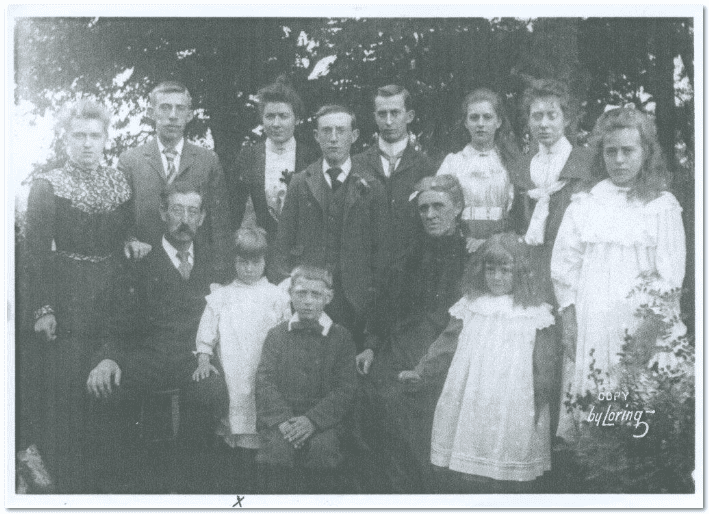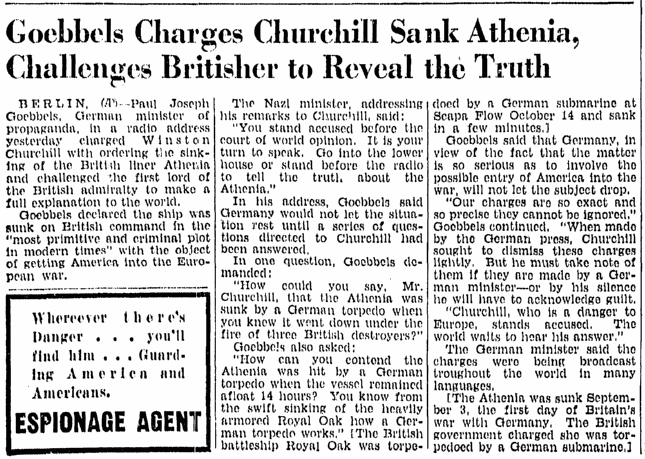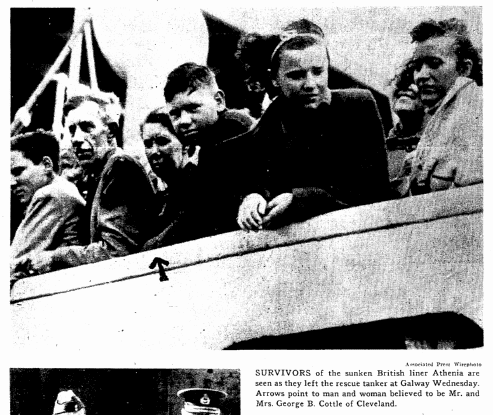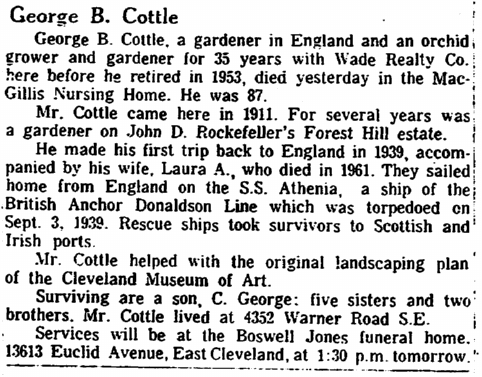Introduction: In this article, Scott Phillips tells how old newspaper articles confirmed his uncle’s incredible WWII survival story—a tale that Scott, as a boy, used to question. Scott is a genealogical historian and owner of Onward To Our Past® genealogy services.
One of the first precepts of genealogy that my mentor (Ginger Simek, president of the Czechoslovak Genealogical Society International) taught me, was to always work hard to find out if the family stories I had heard over the years were mythology or, in fact, reality. Mythology may be fun and exciting, but genealogy is all about reality and the truth as we can document it. Recently, I found myself employing this rule.
I have to say that I was basically blessed with a great childhood. However, I have always found myself harboring a serious regret—one that, as a genealogist and our family’s historian, continues to haunt me to this day. This regret is that I never listened closely enough to far too many family stories when they were proffered to me by my elder family members.
However, just a short time ago I found hope for abolishing, at least in part, this regrettable behavior of my youth. Here’s the story.

As a child, I found that by pleading with my Uncle George Cottle using my best smile, my saddest eyes, and/or my finest “please,” he could be coaxed into telling the story of when he and his wife were on a ship that was torpedoed by a German U-Boat in the Atlantic Ocean, and how they barely escaped with their lives. The trouble is I was always focusing on the submarine part (to this day I still love submarines) and not listening closely for the details of this amazing survival story, such as which ship they were on, when they sailed, where they were going, why, etc.
When I began researching the life and times of my Uncle George for our family tree, I decided I needed to find out if “the torpedo story,” as we all called it, was true or simply a family myth. Naturally, I found myself searching GenealogyBank.com for help.
Using the search terms Cottle, torpedo, ship, and a few others I found that good old Uncle George was indeed telling the truth, the whole truth, and nothing but the truth! I found the ship’s name was the Athenia. Upon adding this name to the search terms, BINGO, I found myself reading about the sinking of the Athenia in over 300 newspapers from the Heraldo de Brownsville published in Spanish in Brownsville, Texas, to the Oregonian published in Portland, Oregon, and from the San Diego Union published in San Diego, California, to the Greensboro Record, published in Greensboro, North Carolina. I was also learning that the 1,347 passengers and crew were bound from the United Kingdom to New York in September 1939.
I found myself being entranced by the newspaper articles about the sinking of the S.S. Athenia in WWII, such as one in the Richmond Times Dispatch that reported the attempts by Nazi propaganda minister, Paul Josef Goebbels, to smear British Prime Minister Winston Churchill over the event.

As I began honing in on Cleveland, Ohio, George’s home, I found a truly fantastic set of newspaper articles in the Plain Dealer from that city.
There I was looking at an old photo showing Uncle George and his wife Laura in a lifeboat on their rescue vessel, the Knute Nelson.

This old photo brought a flood of family memories, and suddenly I was hearing my Uncle’s voice again as he related how he and Aunt Laura, after donning their lifejackets several decks below, headed up to their assigned lifeboat—where they were shoved out of the way by others clambering to get into any lifeboat they could to survive the attack. My Aunt and Uncle moved on to luckily find another lifeboat, the last one to leave the Athenia. They then spent more than seven hours at sea in their leaking lifeboat before their ordeal ended. As they were being rescued, they were horrified to see their originally-assigned lifeboat pulled into the propellers of the Knute Nelson and destroyed with a significant loss of life.
Here is Uncle George’s obituary. Notice that it mentions the sinking of the Athenia.

In my memory, I can still hear my Uncle George telling his survival story of the sinking of the Athenia, and it makes me smile. He would always end this story by remarking “it was the first time in 28 years I went on the ocean, and I am not going again”—although he actually used a bit more colorful language!

Now 88 I am probably the last survivor of the last complete East/West crossing of the Atlantic in Athenia. In August 1939 I travelled with my parents from Galway in the Athenia for a holiday in Boston and New York, particularly to see the World’s Fair of that year.
Whilst in New York we heard the news that War had been declared and then, only a few hours later, that the Ahenia had been sunk by torpedo. Imagine our feelings, knowing that we had to face the journey home a few weeks later.